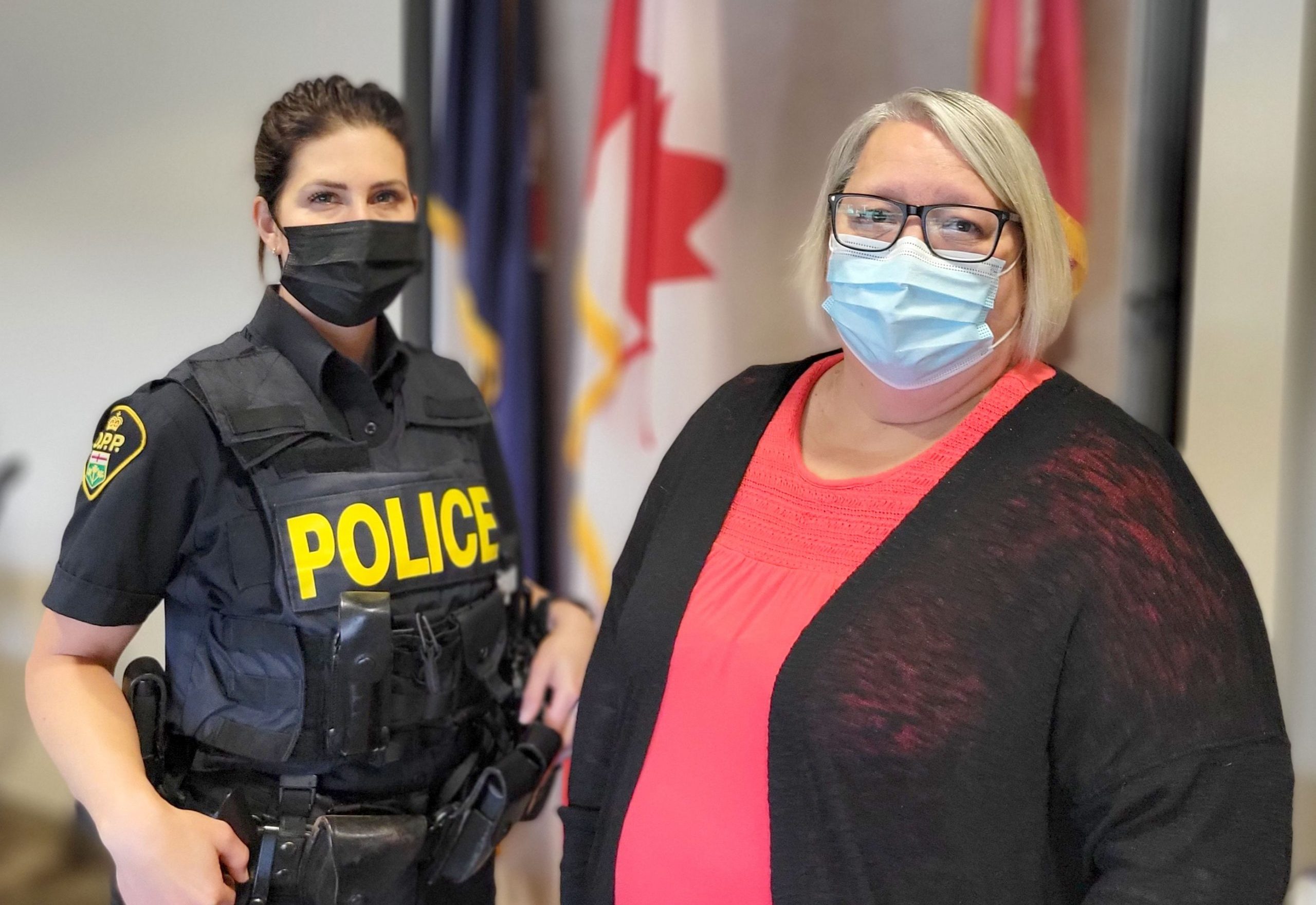WELLINGTON COUNTY – As the COVID-19 pandemic drags on, the Canadian Mental Health Association Waterloo Wellington (CMHA WW) continues to see an increase in calls, specifically for its IMPACT program.
The CMHA WW’s IMPACT (Integrated Mobile Police and Crisis Team) members attend calls with police across Waterloo Region, Guelph and Wellington County.
They work with police officers to provide support to individuals in challenging situations and connect them to services and supports.
“Since the pandemic began there has been a 40% increase in IMPACT responses to 911 calls with police,” detailed an Aug. 23 CMHA WW press release.
CMHA WW director of services Jeff Stanlick said calls in general have been up since the beginning of the pandemic.
“Generally speaking, our calls for service across the board are up 35 to 40 per cent, 40% through IMPACT, 30% and up with Here 24/7,” an addiction, mental health and crisis service.
“I think that people who struggled before the pandemic have been even more isolated and have had added stress to their lives throughout,” he explained.
Stanlick added some of the experiences the association is hearing are from new people that hadn’t reached out to the service previously.
“While its increased our volumes, it’s a good sign and its good news people are reaching out because that means they’re able to access some support so they’re not continuing to struggle in isolation,” he explained, attributing the increase in call volumes to a number of factors.
“I think that people’s (situations) are also more complicated than they used to be, whether its family matters or substance use, isolation, depression, anxiety – all of those pieces.”
Stanlick said the IMPACT program, which began in 2014, was a natural partnership between the association and police.
“The reality is that people in distress, people who are in a crisis situation, are calling 911 or 911 calls can often lead to a mental health intervention,” he explained.
“One of the biggest successes in the program is our diversion rate from hospital.”
He added having the partnership relieves added pressure to the healthcare system if the program can divert individuals from requiring hospitalization.
“Having the partnership allows for the assessment to take place in the moment and people are supported and deescalated in their environment,” said Stanlick.
“Most times the situation is resolved without a presentation to the emergency room and is instead one where people are linked with services and linked with follow up supports following their crisis.”
Through the program, staff are based out of the police department and will attend calls with police. If the situation is deemed safe, the team will stay to address the crisis and support the individual.
Stanlick explained the program has allowed for an increase in capacity building with the association’s police partners, providing them with a better understanding of how to de-escalate mental health crisis situations and what kinds of a responses are helpful.
However, due to funding constraints, Stanlick said the IMPACT team can’t always attend every police call. The program isn’t able to offer a 24-hour service and its current hours are 8am to midnight.
“Inevitably with our call volumes up we just can’t get to all of the calls. We are not a 24/7 service so any calls that are taking place outside of those hours we’re not able to attend,” he explained, adding the team tries its best to complete follow-ups to calls.
“But the need is far too high for us to attend all of those calls.”
Stanlick said the association is looking to expand, but it all comes down to funding constraints and resources available.




